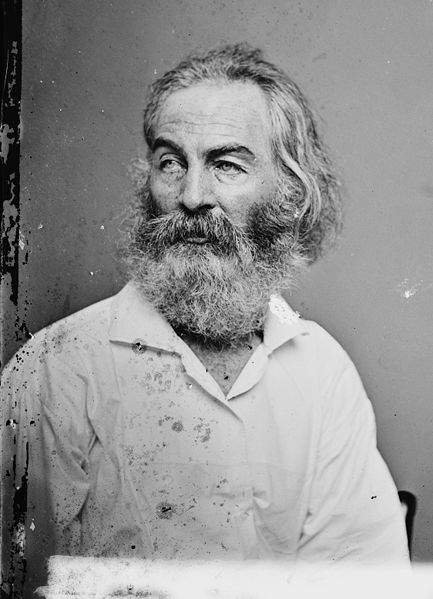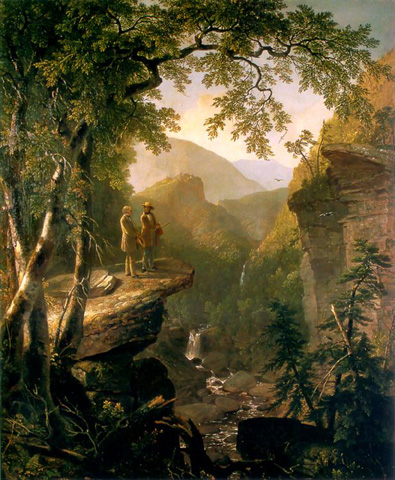In contending with the cultural ideal of beauty -- that is, the dispiriting affects it can have as we become self-conscious of our shortcomings in comparison to this ideal -- a common response is the vague prescription of developing a positive self-image. But this is limited because we can’t help our feelings of being attracted toward an ideal. Furthermore, as social beings, we can’t help feeling self-conscious of how others within the culture perceive us. Yet it is the self-image itself -- so central as it is to our consumer culture – that I believe can be deemphasized through cultural transformation.
The real potential for art toward culturally transformative change, I believe, lies in a realm that remains largely unconsidered: affecting a kind of everyday poetry that culturally shapes one's frame of mind, or the frame of a person's worldview. A recent editorial by New York Times columnist David Brooks provides a good introduction to this issue (see the link to my blog of April 16).
We can attain a sense of self through two means, though usually through some variation of both: comparison to others, or to a cultural ideal; or, through contribution to a greater collective. By employing the arts and other means to culturally emphasize the latter, thus promoting a greater collective consciousness, we in turn deemphasize the former, thus demoting individual-self consciousness.
The problem with the self-image in our consumer culture, I argue, is that it lends itself to demoralization as others and our own selves fail to live up to an ideal. The essential moral problem is the occlusion of the human spirit. But again, what is important to note is that these involve feelings that we’re socialized into and that we commonly can’t help but feel nevertheless.
While art can challenge, or question the ideal, or the idea we have about ourselves (i.e., one's self-image), it can also lend itself to the affirmation of a sense of self derived through contribution, a more truthful and inherently moral disposition without being moralistic – or didactic. In his essay on the poet Walt Whitman, the writer and poet D.H. Lawrence wrote as follows:
The essential function of art is moral. Not aesthetic, not decorative, not pastime and recreation. But Moral. The essential function of art is moral.Art can be all those things that Lawrence describes, and it is, but what Lawrence is honing in on in his use of the word moral is to mean the opposite of demoralization. Both Lawrence and Whitman (and I would add Jesus of Nazareth) we’re onto something prescient and potentially revolutionary. The significant problem of the issue of the ideal, and derivatively, the idea and ideologies, is that the truth about ourselves is potentially greater than whatever ideas we might have about ourselves. But to reap that potential we first have to come to terms with truth.
But a passionate, implicit morality, not didactic.
In his Plato’s Republic, Socrates cites an ancient argument, or difference , between poetry and philosophy that I submit continues to this day. I believe there’s an opportunity to weigh in on this “ancient argument” from the poetic side and advance a resolution. More than art, poetry can be about the truth. To me, it’s no accident that both the arts and philosophy flourished together at that time known as the Golden Age of Greece. In her book The Greek Way, Edith Hamilton writes as follows:
It is clear that in Greece the values were different from our own to-day. Indeed we are not able really to bring into one consistent whole their outlook upon life; from our point of view it seems to involve a self-contradiction. People so devoted to poetry as to make it a matter of practical importance must have been, we feel, deficient in the sense for what is practically important, dreamers, not alive to life’s hard facts. Nothing could be further from the truth. The Greeks were pre-eminently realists. The temper of mind that made them carve their statues and paint their pictures from the living human beings around them, that kept their poetry within the sober limits of the possible, made them hard-headed men in the world of every-day affairs. They were not tempted to evade facts. It is we ourselves who are the sentimentalist. We, to whom poetry, all art, is only a superficial decoration of life, made a refuge from a world too hard to face by sentimentalizing it. The Greeks looked straight at it. They were completely unsentimental. It was a Roman who said it was sweet to die for one's country. The Greeks never said it was sweet to die for anything. They had no vital lies.To restore greatness to our society, we’ll have to shed the untruths that falsely prop up our vitality because that foundation, I sense, is fast crumbling beneath us. Already, I believe, a new foundation is being constructed to enable the world leadership that our country is in a position to provide. But must we first bottom-out before we can begin to recognize it? In the concluding words of James F. Cooper from his book, Knights of the Brush: The Hudson River School and the Moral Landscape, James writes as follows:
The promise of the future outweighs the doubts and repression of the old order. We can boldly advance into the future with the visionary gifts that artists and poets alone possess. Or we can choose to hang back with the dead, blind culture of the old order. I suspect we will choose life. Let us unashamedly honor the strengths and virtues of our nation and encourage our own recognition of them. Let us begin this great task by enlisting gifted artist to help us see once again.If these words I write come off as too high-minded or detached from reality – and honestly, they often do to myself – recall the more grounded proposal that we’re merely exploring these feelings, much as the Annenberg is currently doing concerning the beauty ideal, through the realm of art. I expect no wordy philosophy to induce good art but by the individual artist exploring his or her own feelings and creatively making it their own. While acknowledging our attraction to the ideal, we can nevertheless cultivate a greater appreciation for the real. If the Perfect Wave Project does prove to be the wave of the future, I know no better community than “Surf City” Huntington Beach where we can ride it.













